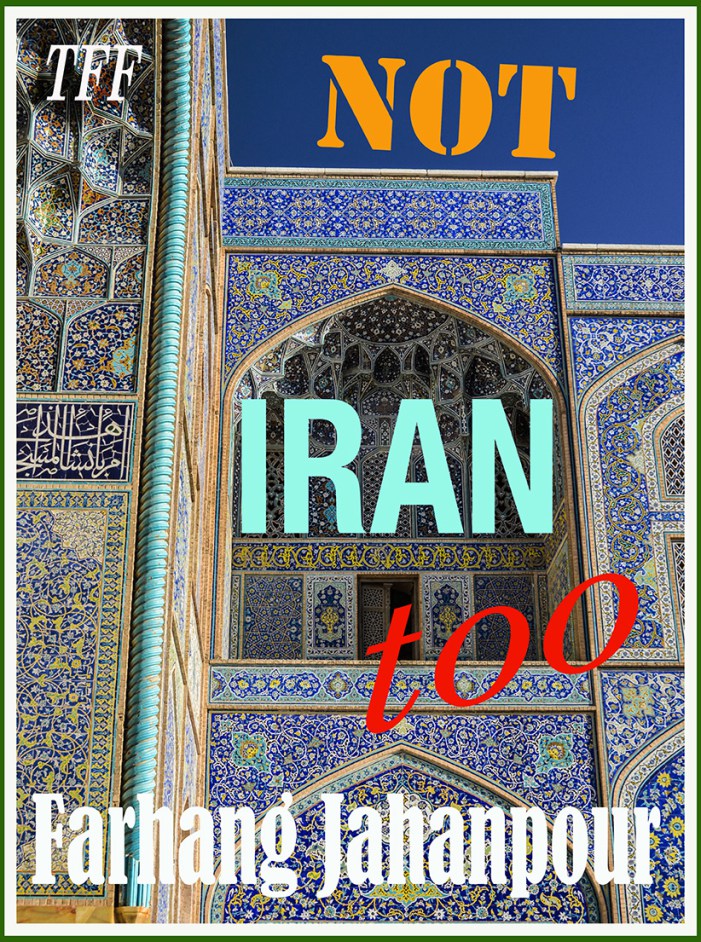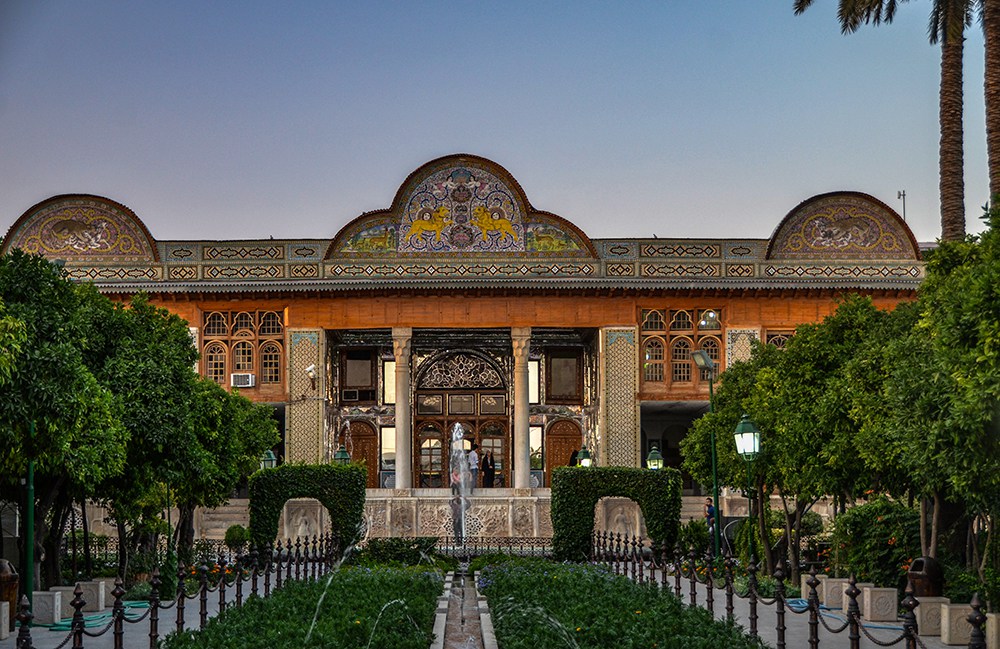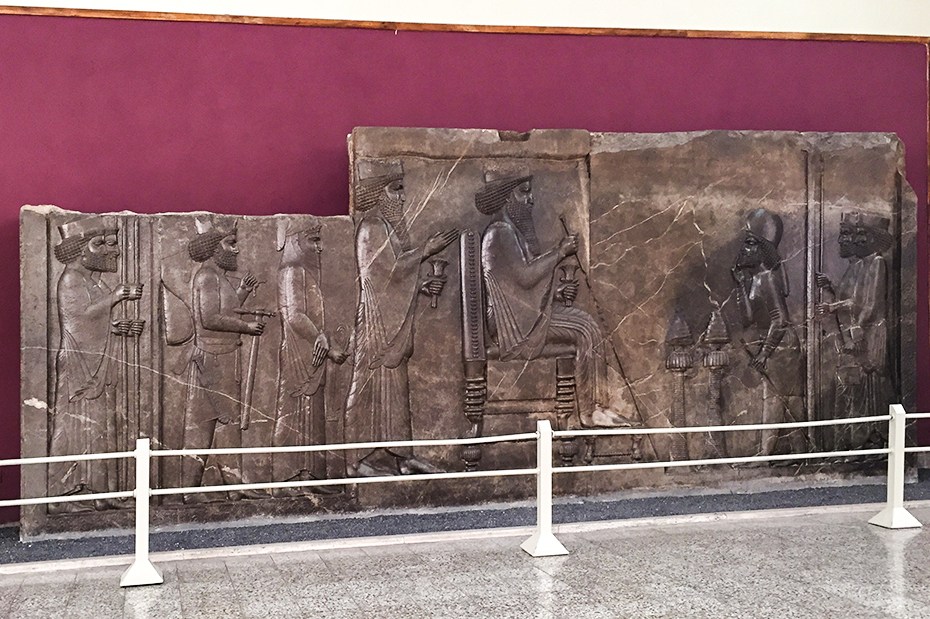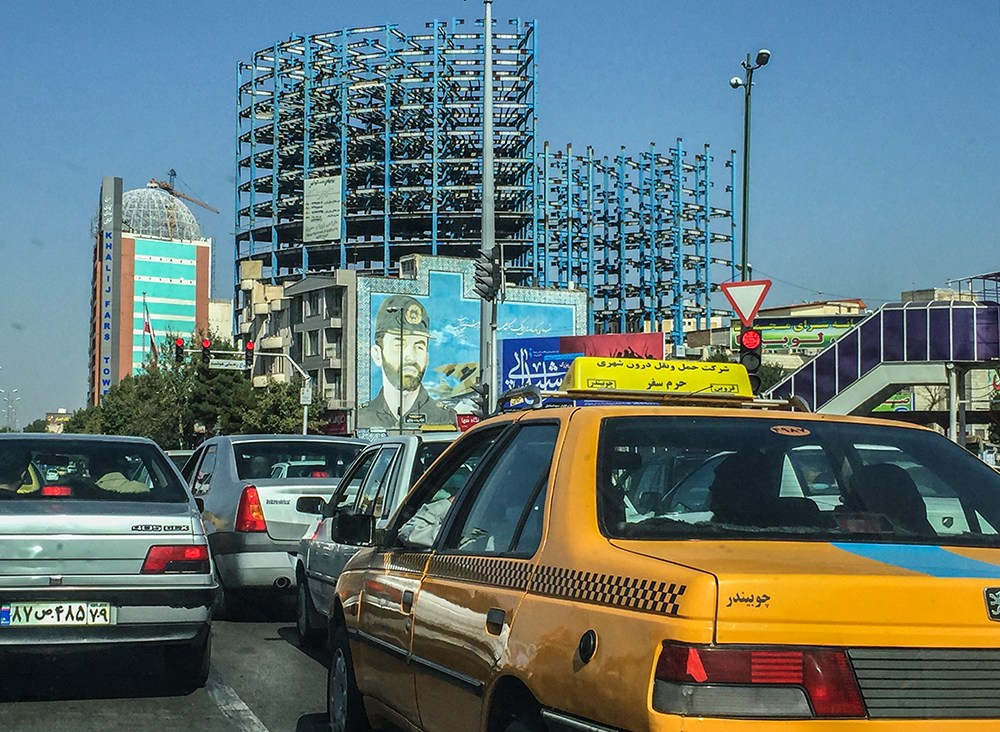Demonization of Middle Eastern Leaders Prior to Invasion and Regime Change – A Long Tradition (Part 1)
MIDDLE EAST AND NORTH AFRICA, 10 Sep 2018
Farhang Jahanpour – The Transnational
6 Sep 2018 – TFF launches a new educational series on regime change in the Middle East to help prevent a repetition on Iran – #NotIranToo
- The US Iran policy aims at nothing but conflict-building followed by economic, political and military violence
From all the remarks made by President Donald Trump and his senior officials, it is clear that the United States is trying to manufacture another regime change in the Middle East, this time in Iran.
It does so by making use of the tried and tested tactic of demonising Iranian rulers and the Iranian people and by finding false pretences and pretexts for implementing their destructive goals.
We have already had an inkling of these tactics by Trump’s withdrawal from the nuclear deal and his allegation that Iran has not been abiding by the terms of that deal, despite clear evidence of Iranian compliance provided by the International Atomic Energy Agency (IAEA), which is in charge of inspecting and certifying Iran’s compliance.
In 11 separate reports since the start of the JCPOA (The Joint Comprehensive Plan Of Action or “the Iran Nuclear Deal) of Juli 2015 the IAEA has certified that Iran has been in full compliance with the terms of the agreement.
We have also had Secretary of State Mike Pompeo’s first policy speech since starting his new job and also his talk at the Reagan Library, both of which amounted to a declaration of war on Iran.
On 16 August 2018, incidentally the 65th anniversary of the US-backed coup against Iran’s democratically-elected Prime Minister Dr Mohammad Mosaddeq, Mike Pompeo formed “Iran Action Group”, and appointed Brian H. Hook, the State Department’s director of policy planning as the coordinator of that group.
Hook served in a number of important posts in the George W. Bush administration during the lead-up to the invasion of Iraq. All these preparations leave no doubt that we are on the verge of another great catastrophe in the Middle East.
Throughout history, especially during the past few decades, there has been a consistent tendency by Western politicians – when they wish to attack a country with the aim of changing its government to which they have been opposed – to single out a certain person or some members of the government in that country and demonise them in order to justify their aggressive policies against that nation.
Iranian mullahs, and their alleged “nefarious behaviour” in the region, their ballistic missiles, their support for terrorism, their hostile stances towards Israel, etc. have provided ample excuses for preparing the way for regime change.
This practice has had a long history and has not been limited to Western leaders, but Western leaders and the corporate media that have often served as a mouthpiece for government policies, have repeatedly used this tactic in order to de-legitimise other rulers and governments.
They have often exaggerated the faults and crimes of certain rulers and governments, while totally ignoring their own long history of imperialism, colonialism, oppression, slavery, wars and mayhem that have been perpetrated by the West over the past few centuries, or the West’s record of invasion and aggression in more recent times.
This by no means is a reflection of Western people as a whole, for often such government policies have been opposed by a large majority of the citizens, but governments and the media have often got away with lies and propaganda as a prelude for their wars and attempts at regime change.
However, it is important to be reminded of some of these practices in order not to be duped by the same propaganda in future and, better still, to take action to prevent such barbaric practices.
The main aim of this article is to awaken the ethical giant that has remained dormant in the West and America, and to prevent further atrocities in the future.
With the rise of Europe and the colonisation of a large part of the world by Western empires, the concepts of civilisation and Christianity were often used as justifications for waging war against other countries and subjugating other societies that had different beliefs and customs from the West.
Usually, the imperial plans for world domination went hand-in-hand with an assumption of superiority to civilise the “primitive” or “barbarian” nations, reminiscent of the division of the world under the Roman Empire into the Romans and the barbarians.
- Making use of religion in the service of colonialism
As has often been pointed out by many historians, the European conquerors attacked other countries with the sword in one hand and the Bible in the other to save the heathens or pagans, while at the same time expanding their respective country’s domination over a certain part of the world.
The oppression of native Indians in the New World was often justified by the excuse of wanting to save their souls.
The same excuse was used when European generals attacked some Muslim countries. General Afonso de Albuquerque, the Portuguese “grand conqueror” and empire builder, advanced the three-fold Portuguese grand scheme of combating Islam, spreading Christianity and securing trade in Asian spices for Portugal.
Christianity served as a frequent justification that European powers used to colonise and enslave the Africans.
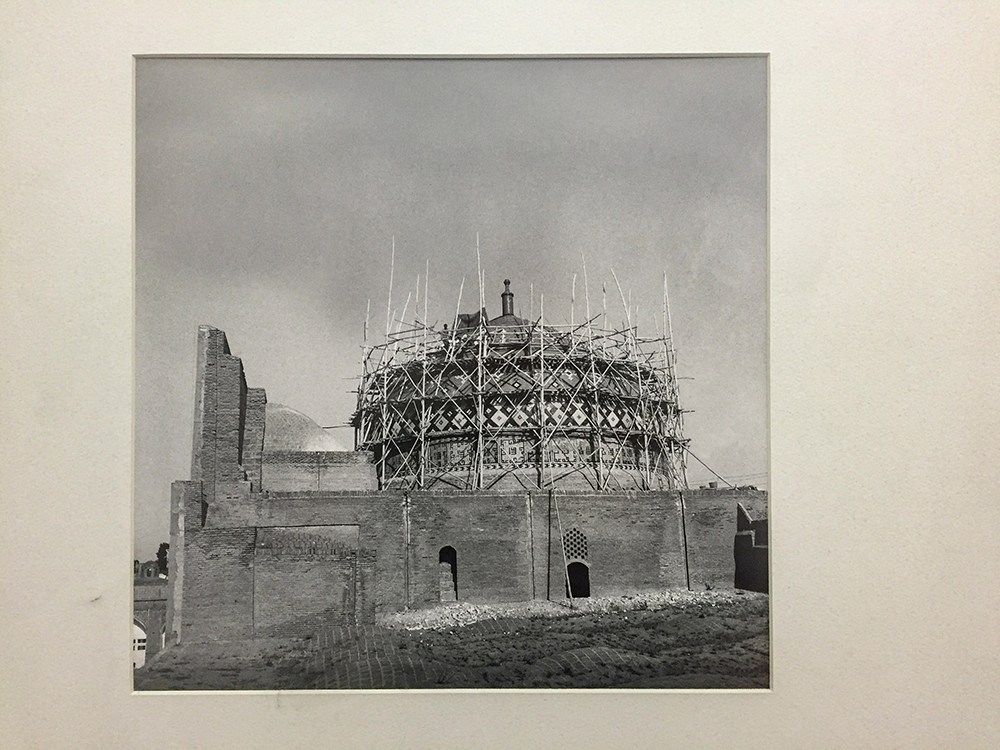
By Jan Oberg © Oberg PhotoGraphics
This does not mean that there were not some sincere Christian missionaries who really wanted to help the people, but their work was hijacked by those with more pernicious intentions.
To many colonialists, Christianity represented “Western civilization” (clearly forgetting its Middle Eastern roots), and the basis for Western morality.
As Jan H. Boer of the Sudan United Mission has written (See Toyin Falola, Violence in Nigeria: The Crisis of Religious Politics and Secular Ideologies, University of Rochester Press, 2001, p. 33):
“Colonialism is a form of imperialism based on a divine mandate and designed to bring liberation – spiritual, cultural, economic and political – by sharing the blessings of the Christ-inspired civilization of the West with a people suffering under satanic oppression, ignorance and disease, effected by a combination of political, economic and religious forces that cooperate under a regime seeking the benefit of both ruler and ruled.”
As time went by, instead of bringing peace, security, prosperity and enlightenment, Christianity became an instrument in the hands of arrogant colonialists for oppressing the native people.
As Edward Andrews points out in “Christian Missions and Colonial Empires Reconsidered: A Black Evangelist in West Africa, 1766-1816”, Journal of Church and State (2010), 61 (4), pp. 663-691):
“Christianity became not a saving grace but a monolithic and aggressive force that missionaries imposed upon defiant natives. Indeed, missionaries were now understood as important agents in the ever-expanding nation-state, or ideological shock troops for colonial invasion whose zealotry blinded them.”
They even justified their colonisation and oppression of other countries as a form of self-sacrifice and benevolence to the coloured people.
The colonialists developed the concept of “The White Man’s Burden”.
In his famous poem The White Man’s Burden, Rudyard Kipling exclaims :
“Take up the White Man’s burden,
The savage wars of peace –
Fill full the mouth of
Famine and bid the sickness cease”
Some even wondered if the “inferior races” were worth civilising. Kipling believed that non-white races were so backward that they would be unable to comprehend the benefits of Europeanisation. It was his belief that Africans must be pulled toward the “light” in order to see the errors of their savage nature.
In a lecture that Dr J. C. Nott gave in the United States in 1851, he said that the so-called inferiority of Africans was evident in the “deep-rooted intellectual and physical differences seen around us, in the White, Red, and Black Races, are too obvious and too important in their bearings, to be longer overlooked…” (See Nott, J. C. (1851). An Essay on the Natural History of Mankind. Ann Arbor. ProQuest I&L Research Collections, Dade, Thompson & Co., p. 3).
- The Slave Trade
It was such pernicious ideas that led to the savage attacks on various African nations and the enslavement of millions of innocent Africans.
Although some form of slavery had existed from the beginning of human history, with the rise of European powers and the need for cheap labour in the New World, slavery assumed industrial proportions, involving millions of people being grabbed and uprooted from their homes and shipped across the world to work in inhumane conditions.
The largest slave trade in history was created by “civilised, white, Christian Europeans”.
Before it was over, as many as 60 million Africans would be killed for the profit of white Christian colonialists.
A main reason for the high death toll among the slaves was the tidal wave of war and desolation that the slave trade unleashed in the heart of Africa.
While both Europe’s and Asia’s populations nearly doubled between 1600 and 1800, Africa’s population dropped from 114 million in 1600 to 107 million in 1800 (See “Death Toll from the Slave Trade: The African Holocaust”, World Future Fund).
Some scholars estimate that some 30 to 60 million Africans died through being enslaved. Out of those captured Africans, between 12,000,000-15,000,000 survived the ordeal of forced migration to become plantation labourers in North and South America and the Caribbean.
There was a 50% mortality rate among new slaves while being gathered and stored in Africa, a 10% mortality rate among the survivors while crossing the ocean, and another 50% mortality rate in the first “seasoning” phase of slave labour. Overall, some scholars estimate a 75-80% mortality rate in transit. (See David Stannard, American Holocaust: The Conquest of the New World, Oxford University Press, 1993, pp. 317-18).
The first African slaves arrived in Hispaniola in 1501. In 1518, Charles I of Spain agreed to ship slaves directly from Africa. Britain played a prominent role in the Atlantic slave trade, and the “slave triangle” was pioneered by Francis Drake.
Historian Eric Williams argued that the profits that Britain received from its sugar colonies, or from the slave trade between Africa and the Caribbean, was a major factor in financing Britain’s industrial revolution. (See Eric Williams, Capitalism and Slavery, University of North Carolina Press, 1944, pp. 98-107).
The major slave trading nations, ordered by trade volume, were the Portuguese, the British, the French, the Spanish and the Dutch Empires.
________________________________________________
 Dr. Farhang Jahanpour – Tutor, Department of Continuing Education, University of Oxford & Cambridge University; member of the Transnational Foundation for Peace & Future Research.
Dr. Farhang Jahanpour – Tutor, Department of Continuing Education, University of Oxford & Cambridge University; member of the Transnational Foundation for Peace & Future Research.
Go to Original – transnational.live
DISCLAIMER: The statements, views and opinions expressed in pieces republished here are solely those of the authors and do not necessarily represent those of TMS. In accordance with title 17 U.S.C. section 107, this material is distributed without profit to those who have expressed a prior interest in receiving the included information for research and educational purposes. TMS has no affiliation whatsoever with the originator of this article nor is TMS endorsed or sponsored by the originator. “GO TO ORIGINAL” links are provided as a convenience to our readers and allow for verification of authenticity. However, as originating pages are often updated by their originating host sites, the versions posted may not match the versions our readers view when clicking the “GO TO ORIGINAL” links. This site contains copyrighted material the use of which has not always been specifically authorized by the copyright owner. We are making such material available in our efforts to advance understanding of environmental, political, human rights, economic, democracy, scientific, and social justice issues, etc. We believe this constitutes a ‘fair use’ of any such copyrighted material as provided for in section 107 of the US Copyright Law. In accordance with Title 17 U.S.C. Section 107, the material on this site is distributed without profit to those who have expressed a prior interest in receiving the included information for research and educational purposes. For more information go to: http://www.law.cornell.edu/uscode/17/107.shtml. If you wish to use copyrighted material from this site for purposes of your own that go beyond ‘fair use’, you must obtain permission from the copyright owner.
Read more
Click here to go to the current weekly digest or pick another article:
MIDDLE EAST AND NORTH AFRICA:
